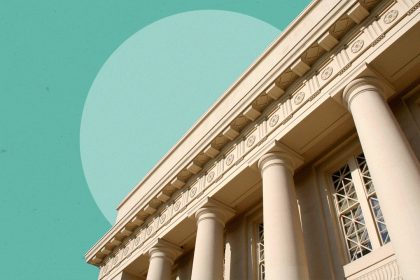Monkey Business Images/Shutterstock
Key takeaways
- To find the due date of your first mortgage payment, add 30 days to your closing date, then find the first day of the following month.
- When you make mortgage payments, you’re paying for the previous month, not the current month.
- You have several options for paying your mortgage, such as setting up autopay or paying online through your servicer’s portal.
When is the first mortgage payment due?
The due date for your first mortgage payment is based on your mortgage closing date. You must typically begin making payments one full month (30 days) after your mortgage closing date, on the first day of the month following the end of that 30-day period.
Example of when a first mortgage payment is due
Say you close on your mortgage on March 12. Adding a month brings you to April 12, which would mean your mortgage due date would be on the first day of the following month: May 1. While it may seem like you’re skipping a payment, you’re not. That’s because your mortgage payments are for the previous month, not the current month.
The documents you receive at closing specify the due date of your first mortgage payment, typically in something called the “First Payment Letter.” This also outlines the amount of principal and interest you’ll pay each month, along with any tax payments that are part of your monthly mortgage bill.
Can you change the due date of your first mortgage payment?
In some cases, homebuyers can prepay interest, and even a portion of a mortgage payment, at closing. This can move the first full mortgage payment up to two months — or 60 days — after closing has taken place. Keep in mind that months with 31 days can impact your ability to adjust your first payment.
“This is a closing strategy that many loan officers discuss with their clients,” says Chris Parks, sales manager for Churchill Mortgage. “An example would be closing in August, skipping the August and September payments and then having your first payment due in October.”
If the lender allows, many homebuyers also try to strategically time closing with the end of an apartment lease or the sale of an existing home. This can help avoid juggling rent and a mortgage or multiple mortgage payments.
“Changing the mortgage due date is especially important for cash flow. Moving is expensive. So are closing costs, furnishing a new home and paying for a home warranty. Giving yourself as long as possible to build up your funds or to align with payday is a smart move,” says Jonathan Palley, CEO of Clever Tiny Homes.
Can you change the due date of your ongoing mortgage payment?
Some lenders let you adjust the due date of your ongoing mortgage payment — for example, from the 1st of the month to the 10th — especially if you request it during closing. Some don’t. Ask your lender about its policies.
How much is your first mortgage payment?
The amount of your first mortgage payment is listed in your closing disclosure, a document you’ll receive at least three days before closing. Each of your mortgage payments includes:
- Loan principal
- Interest
- Taxes (if you pay through your mortgage servicer)
- Homeowners insurance (if you pay through your mortgage servicer)
The acronym PITI stands for these main components of your mortgage payment: principal, interest, taxes and insurance. However, your payment may also contain other components, such private mortgage insurance (PMI) or fees charged by your homeowners association, if you have one.
For fixed-rate mortgages, the principal and interest payments will remain the same for the life of the loan. However, other costs that make up your monthly payment pay change. For example, your property taxes or homeowners insurance premiums may increase over time.
Example of how much a first mortgage payment costs
Say you bought a house for $350,000 at a 6.8 percent interest rate and put down 10 percent. Using Bankrate’s mortgage payment calculator, your monthly mortgage payment would be about $2,350, with around $2,054 going toward the principal and interest and the rest going toward property taxes and insurance.
Your mortgage’s first payment will largely go toward interest, based on your loan’s amortization schedule. While your first year of homeowner’s insurance premiums are often included with closing costs, you can expect to pay each month toward your annual property tax and insurance costs.
How to make your first mortgage payment
You can choose one of many methods to pay your mortgage, including:
- Autopay. Almost all lenders allow you to pay your mortgage via recurring, electronic payments. This way, you’ll avoid missed payments and late fees — but you can also schedule larger-than-required payments to pay off your mortgage early and save on mortgage interest. Some lenders offer discounts for autopay.
- Online. You can also manually make payments through your lender’s portal or app. If you plan to pay off your house early, but you can’t commit to making extra payments each month, this is an easy way to pay toward your principal when you have space in your budget.
- By mail. If you prefer, you can send your monthly payment by mail using a personal check, cashier’s check or money order. Always include your mortgage account number on your check and allow enough time for delivery to avoid late charges.
- By phone. Your mortgage statement will also include a number you can call to make a mortgage payment. You’ll need your mortgage account number and bank account — or other payment — information. There may be a service charge for phone payments.
If you want to prepay your mortgage, make sure your servicer applies the extra payments to the principal balance of the loan. This is not a default for many lenders.
What happens if you miss a mortgage payment?
If you miss your mortgage payment, be sure to pay as soon as possible. Most lenders offer a grace period, during which you can make a payment without a late fee or other consequences. Keep in mind that, while one late payment likely won’t result in your eviction, repeated delinquencies could harm your credit and lead to foreclosure.
“Missing a payment is a big deal. By missing a payment, you are putting into question your ability to repay the debt and will incur additional scrutiny on any further transactions,” Parks says.
Late payments can also cause other issues. According to Parks, some lenders will disqualify you from another mortgage or a refinance if you’re more than 30 days late two times during the same 12-month period.
If your payments are no longer affordable, contact your lender. You may qualify for a loan modification, repayment plan or a temporary payment reduction.
FAQ
Why we ask for feedback
Your feedback helps us improve our content and services. It takes less than a minute to
complete.
Your responses are anonymous and will only be used for improving our website.
Help us improve our content
Read the full article here
















